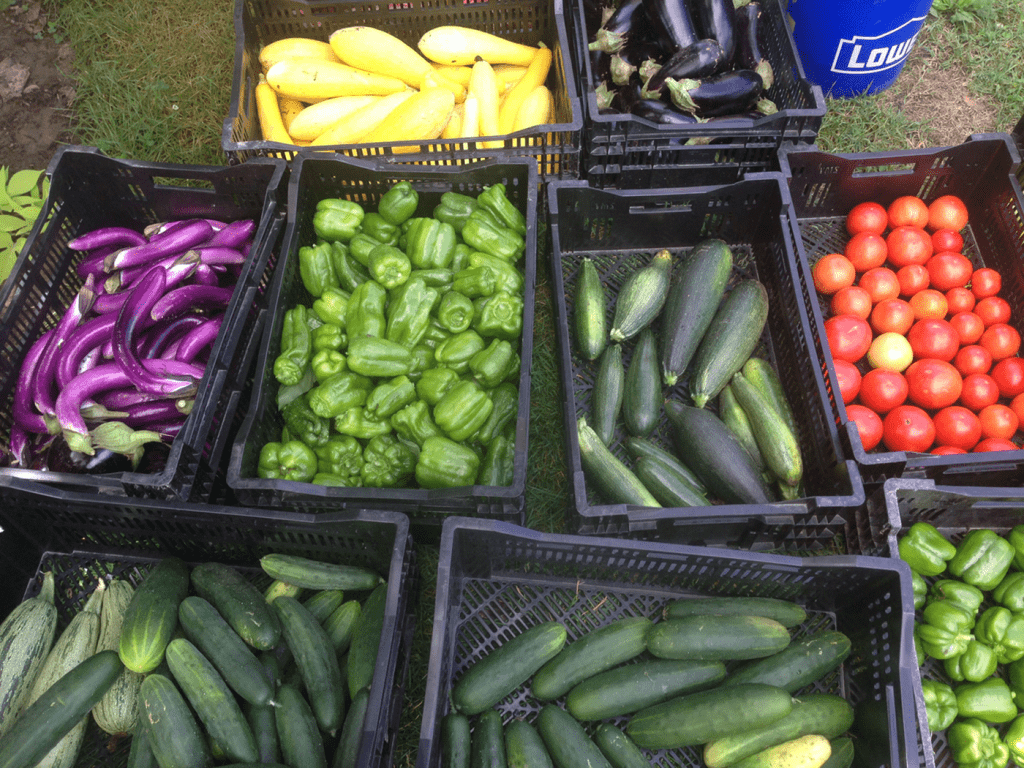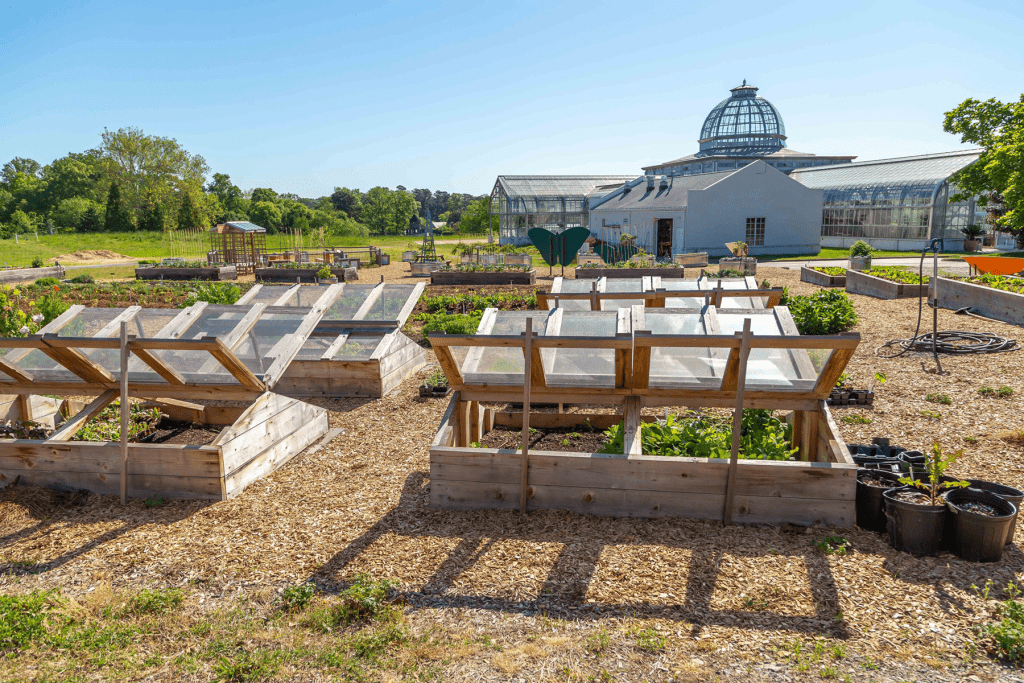Overcoming Obstacles: The Kroger Community Kitchen Garden
Everyone should be able to enjoy fresh fruit and vegetables. The Kroger Community Kitchen Garden at Lewis Ginter Botanical Garden helps make that possible by growing and harvesting produce and delivering it to Feed More’s Meals on Wheels and Kids Cafe programs serving Central Virginia’s most vulnerable populations. We started the Community Kitchen Garden with a grant from The Community Foundation and help from other community partners and it is generously supported by Kroger. Since its inception in 2009, staff and volunteers have harvested and donated over 50,000 pounds of vegetables and fruit!
Feeding America reports that more than 20% of Richmonders experience food insecurity, which is a lack of access, at times, to enough food for an active, healthy life for all household members and “limited or uncertain availability of nutritionally adequate foods.” The COVID-19 pandemic has only exacerbated this lack of food access. Here at Lewis Ginter Botanical Garden, we want to help our community get the healthy food they need to thrive.
Supporting the Community Through COVID
Feed More collects, prepares and distributes food using a network of agencies. Board Member Tim Beane explained how Feed More was impacted by the beginning of the pandemic. “This time a year ago it was very hard to get volunteers. Everyone was scared,” Tim said. Before the pandemic, an average of 300 volunteers per week helped at Feed More’s Richmond campus. This number has rebounded to about 200 per week.
The reduced number of volunteers required the Meals on Wheels program to pivot. Participants now receive packaged meals on a weekly rather than daily basis. The meals are frozen rather than fresh, but reheating this food provides the same nutritional value. Participants still receive those important servings of fruits and vegetables.
Symbiosis with the Kroger Community Kitchen Garden
Feed More had fewer canned food drives last year as schools and offices halted in-person activities. Thankfully, produce donations remained relatively stable. Feed More has a symbiotic relationship with local gardens such as the Kroger Community Kitchen Garden and other community partners. Some farms also donate their excess produce and Feed More distributes it to those in need. In fact, Feed More received and distributed a record number of donations in 2020 — over 36 million pounds of food!

A summer harvest typically includes cucumbers, peppers, squash (like zucchini) and tomatoes. Some will be used fresh and some will be cooked in recipes.
Lewis Ginter Gardener Michelle Chatham says the pandemic wasn’t the only challenge this year — we’ve also been struggling with root-knot nematodes. These microscopic roundworms damage root systems and impact the plants’ ability to absorb nutrients and water. Plants in the Community Kitchen Garden can’t grow as efficiently, leading to a lower crop yield.
Overcoming the Obstacles
Michelle is using cover crops such as oilseed radish (Raphanus sativus), field peas (Pisum sativum) and annual ryegrass (Lolium multiflorum) to suppress the nematodes. Dave Sumner and Gary Wood volunteer in the Kroger Community Kitchen Garden each week. They do very important work replacing the nematode-infested soil in the raised beds and troughs with fresh soil. Michelle calls Dave and Gary the “most important asset” to keeping the Community Kitchen Garden producing at optimum levels.
Michelle is also clearing the “Back 40,” which is the garden that housed the Community Kitchen Garden before its current location. Replanting this area will allow Lewis Ginter to donate higher crop yields. “I have a lot of hope that it will really transform the Community Kitchen Garden and get as much food as possible to Feed More,” Michelle said.
Inspired to work on your own garden? Michelle’s biggest tip is “don’t get discouraged!” If you buy a tomato plant and it doesn’t do well, it’s probably not your fault. Other factors such as the climate might be getting in the way. “Everyone can have a green thumb, it just takes a lot of trial and error to get there,” Michelle explains. If you are inspired to grow your own veggies check out these tips for starting your own vegetable garden this spring. And if it does well, please consider sharing your bounty with neighbors in need or with Feed More!
